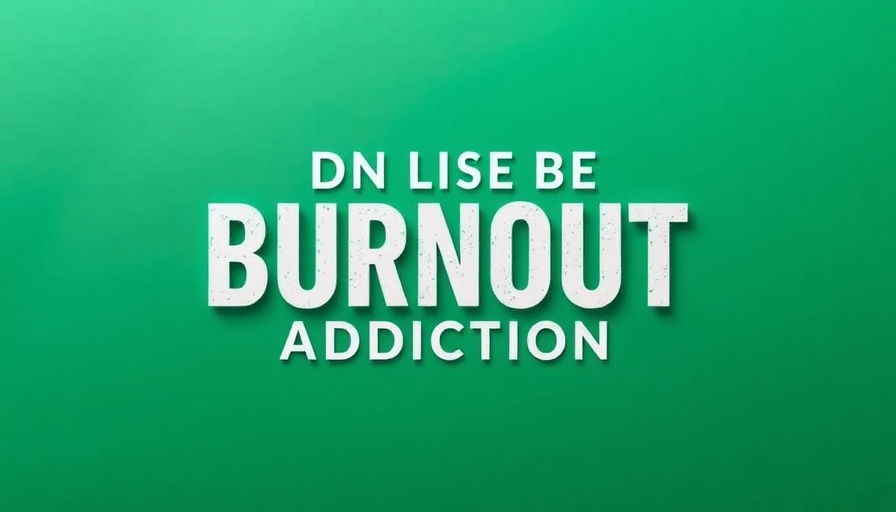
Understanding Entrepreneurial Burnout: A Widespread Challenge
Entrepreneurship is often romanticized, depicting founders as fearless innovators blazing a new trail. However, beneath this exciting surface lies a stark reality—burnout is a pressing issue among entrepreneurs. Scott Anderson, founder of Doubledare, sheds light on the often-misunderstood complexities of burnout, pinpointing it as a significant factor that can derail even the most promising ventures. Entrepreneurs often plunge into work with unyielding dedication, neglecting their mental and physical health, which can lead to decreased productivity and even business failure.
Why Burnout Happens: The Pitfalls of Passion
Passion drives many entrepreneurs to success, yet this very passion can become a double-edged sword. Anderson explains that intense dedication can cloud judgment, preventing business owners from recognizing red flags of burnout until it’s too late. The culture of hustle glorifies busyness—many feel the pressure to be perpetually productive, leading to long hours and severe stress. This relentless pursuit can erode work-life balance, leaving entrepreneurs feeling overwhelmed and drained.
Warning Signs: How to Recognize Burnout Early
Understanding the early warning signs of burnout is crucial. Common indicators include chronic fatigue, irritability, lack of motivation, and even physical symptoms such as headaches or gastrointestinal issues. According to recent studies, nearly two-thirds of entrepreneurs report experiencing symptoms of burnout, highlighting the urgency for awareness and proactive measures. Anderson urges business owners to remain self-aware and vigilant about their mental state, emphasizing that recognizing need for rest isn't a sign of weakness but rather a step toward sustainable success.
Strategies to Combat Burnout: Breaking Free from the Cycle
Anderson offers several actionable insights for entrepreneurs determined to break free from burnout. First, practicing mindfulness and implementing regular breaks throughout the workday can significantly enhance productivity and mental clarity. Moreover, delegating tasks and seeking support from teams can alleviate pressure. Often, entrepreneurs feel they must do everything alone; however, effective delegation is an essential skill that encourages collaboration and distributes workload evenly.
Building a Sustainable Business: The Role of Self-Care
One of the most effective practices Anderson champions is prioritizing self-care. Routine activities such as exercise, meditation, and hobbies can recharge mental capacities, leading to increased creativity and enthusiasm. This holistic perspective promotes the idea that personal well-being is directly correlated to business success. Companies that foster a supportive work environment yield higher employee satisfaction and often see greater overall productivity and innovation.
Changing the Narrative: From Hustle Culture to Health Culture
However, achieving this shift requires conscious effort and an industry-wide cultural change. Anderson emphasizes the urgency for a new narrative—one that values balance and mental health equally to productivity and profit. By celebrating well-being as a cornerstone for entrepreneurship, business leaders can create an environment that prioritizes team health and, in turn, drives sustainable growth.
A Call to Action: Prioritize Your Well-Being for Long-Term Success
In conclusion, combating entrepreneurial burnout isn’t merely about surviving; it’s about thriving. As Scott Anderson aptly illustrates, understanding the importance of self-care and recognizing burnout can empower entrepreneurs to foster healthier work environments. We urge business owners and professionals to take actionable steps towards enhancing their mental well-being and to embrace a culture of balance. Making these changes not only benefits individuals but can also profoundly impact the business landscape as a whole. Invest in your health today for a better tomorrow.
 Add Row
Add Row  Add
Add 




Write A Comment